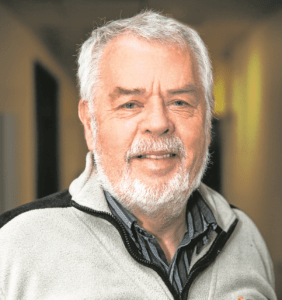Opinion
This Week’s Editorial: Soon it will be a year
Ejvind Sandal
This article is more than 2 years old.

(photo: Flickr/Mirek Pruchnicki)
The Ukrainians seem more committed than ever to fighting it out – the way they turned down Putin’s ‘Christmas truce’ offer in early January said it all.
Allies stepping up
Their Western Allies, where 4 million refugees are currently being sheltered, are accordingly stepping up their commitment. Their Christmas marked the 10-month anniversary of the start of the war, and soon it will be a year. Not a day goes by without them delivering increasingly sophisticated weapon systems, along with necessary training to handle them.
On Putin’s side, it’s mostly the Wagner troops fighting his corner, as the rest of the Russian Army has somewhat lost its dynamic. Most probably by now, they’ve used up their stockpile of old ammunition and are now having to buy from Iran and North Korea.
Running out of options
Putin has used most of his available cards. With his last hand, he called up his best reserves and lost several hundred thousand young Russians to exile.
Now we are waiting for the mothers of the thousands of dead sons to raise their voices – like they did in the US during the War in Afghanistan – to force Putin into coming up with some sort of solution.
Somehow, he needs to accept this is a special military operation he cannot win. Nobody needs to mention the ‘lose’ word.
Life in Denmark continues
We cross our fingers for such a solution in 2023, so we can return to believing that warfare like this belonged in the past.
In Denmark, this would mean lower inflation and lower prices for energy and goods, although most of its major companies will remain withdrawn from Russia for the foreseeable.
In the meantime, a majority government has been installed – a rarity in recent times – with political comeback kid Lars Løkke Rasmussen now foreign minister.
Two major tests ahead
The middle-ground government is a daring experiment and two major tasks will test its mettle.
The first is a reorganisation of a health system resisting reform. Nobody disputes the COVID-19 heroes deserve a reward, but they are standing in the way of real change. The system simply cannot work without a massive input of immigrants, but at the moment it takes a year to process an application from a trained nurse from India. Meanwhile, private hospitals, which have the capacity to make a difference, are rarely utilised.
Secondly, the labour agreement negotiations are beginning, and they look destined to end up in conflict and general strikes. The gulf between the demands of the unions and the offers made by the employers is so huge that it may end in arbitration and the government passing a law to make the arbitration binding. It has happened before – but not with a violet government.
Apart from that, nothing is overly rotten in the kingdom.

About
Ejvind Sandal
Copenhagen Post co-owner Ejvind Sandal has never been afraid to voice his opinion. In 1997 he was fired after a ten-year stint as the chief executive of Politiken for daring to suggest the newspaper merged with Jyllands-Posten. He then joined the J-P board in 2001, finally departing in 2003, the very year it merged with Politiken. He is also a former chairman of the football club Brøndby IF (2000-05) where he memorably refused to give Michael Laudrup a new contract prior to his hasty departure. A practising lawyer until 2014, Sandal is also the former chairman of Vestas Wind Systems and Axcel Industriinvestor. He has been the owner of the Copenhagen Post since 2000.










































